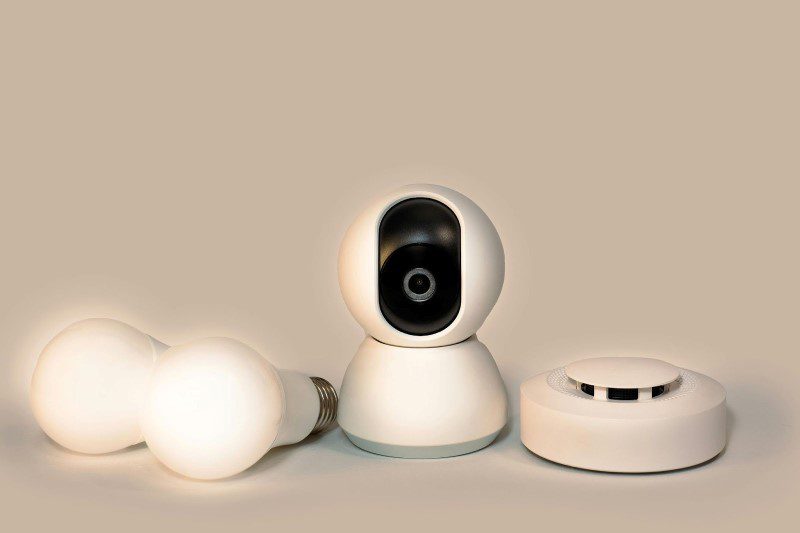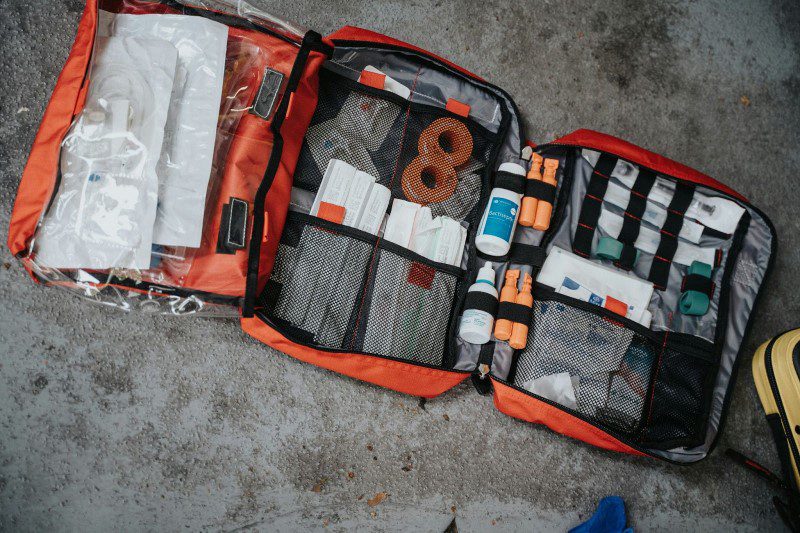From baby-proofing to backup plans, here’s our Boca Raton Parent’s Guide To Household Safety, the best ways to protect your home and your family—inside and out…
Your home is more than just four walls—it’s where your child takes their first steps, where giggles echo during family game nights, and where memories are made every single day. That’s why keeping it safe isn’t just a task—it’s an act of love.
From baby-proofing basics to preparing for “just in case” moments, this Parent’s Guide To Household Safety checklist is designed to help you feel confident that your home is ready for whatever life brings.
Physical Safety Essentials: Building a Safer Home Room By Room 
Physical safety is the foundation of any secure home. It’s what keeps your loved ones protected day to day, whether you’re tackling dinner in the kitchen or tucking in the kids at night. Many of the most effective safety measures are simple, affordable, and easy to implement. Here’s how to make sure your home is ready to handle the everyday and the unexpected:
- Smoke and carbon monoxide detectors – According to the National Fire Protection Association, almost three out of five home fire deaths occur in homes without working smoke alarms. That’s a sobering stat—but one you can do something about today. Install smoke detectors in every bedroom and hallway in your home and carbon monoxide detectors near sleeping areas and any fuel-burning appliances. Test your detectors once a month and be sure to replace the batteries twice a year.
- Fire extinguishers – Having a fire extinguisher is one thing. Being able to use it in a panic? That’s another story. Place extinguishers where fires are most likely to start—like the kitchen, garage, or laundry room—and make sure every adult in the house knows how to use them.
- Home security – While high-tech security systems are more accessible than ever, basic protections still go a long way. Start with quality locks on all of your exterior doors and good motion-activated outdoor lighting, then layer on smart tech as it fits your budget. Consider a smart doorbell or camera system for extra peace of mind when you’re away.
- Child-proofing for little explorers – If you’ve got young kids, you know they have a talent for getting into places they shouldn’t. Use outlet covers and cord organizers to mitigate the threat of any electrical accidents. Install cabinet locks on anything storing cleaners, medications, or sharp items. Secure heavy furniture to the wall to prevent tipping.
Digital Safety At Home: Protecting Your Virtual Front Door 
We lock our doors and close our windows at night—but what about our Wi-Fi network or cloud storage? In today’s tech-driven world, digital safety is just as important as physical security. From smart thermostats and baby monitors to online banking and digital photo albums, our homes are more connected than ever—which means they’re more vulnerable, too. These simple steps can help you keep your household safe from online threats and give you back some peace of mind.
- Secure your Wi-Fi network – Your home’s Wi-Fi is like the front gate to all your digital services. If it’s not secure, anyone can access your personal data—or worse, your smart home systems. Change your router’s default password to one that is strong and unique.
- Back up important files – Imagine your laptop crashes and you lose everything—photos, tax documents, that novel you swore you’d finish. A good backup system prevents that worst-case scenario from becoming a reality. Use cloud storage services like Google Drive, Dropbox, or iCloud to automatically back up your important files. Store copies of critical files—like scanned passports, insurance policies, or medical records—in a password-protected folder.
- Use parental controls for kid-safe browsing – Kids are more tech-savvy than ever, and that means digital safety needs to start early. Whether they’re watching YouTube or doing virtual homework, parental controls can help keep their online experiences safe, age-appropriate, and balanced.
Financial Protection: Protect What You’ve Built 
Just like fire alarms and deadbolts, financial safeguards help you feel more secure. They may not be as visible as a new security camera or front door upgrade, but their impact is just as powerful. Here are a few simple but meaningful steps to help you make your home feel protected on every level—including your wallet.
- Homeowners or renters insurance – Whether you own your home or rent, having insurance in place is non-negotiable. If it’s been a while since you’ve looked at your policy or if you don’t have one yet, take 15 minutes this week to ensure you have the coverage you need.
- Emergency fund – If your water heater broke tomorrow or you lost work unexpectedly, would you be able to cover it without going into debt? An emergency fund is your financial cushion—the thing that lets you breathe easy when life throws a curveball. Aim for 3–6 months of essential expenses saved in a separate, easily accessible account.
- Life insurance – Life insurance may not be the first thing you think of when you’re checking safety boxes—but it’s one of the most powerful ways to protect your loved ones. A term life insurance policy ensures that if something happens to you, your family will have the financial means to maintain their lifestyle—including staying in the home you’ve worked so hard to build. Term life insurance policy costs are often much lower than people expect—especially when you’re young and healthy.
Emergency Planning: Prepare For the Unexpected

No one likes to think about emergencies. But whether it’s a power outage, a natural disaster, or a family emergency, being caught off guard can quickly turn an inconvenience into a crisis. That’s where emergency planning comes in. Let’s break down a few ways to prepare your home so you can focus less on the “what-ifs” and more on living well.
- Create a family emergency plan – Emergencies can be scary—especially for kids. But having a plan in place can make those moments feel less overwhelming and more manageable for the whole family. Pick a meeting spot near your home and another one farther away. Make sure everyone knows where to go and who to call if they get separated. Write down important phone numbers and practice the plan a couple of times a year.
- Assemble an emergency kit – An emergency kit doesn’t need to be Pinterest-perfect—it just needs to be practical. Having basic supplies on hand can make a huge difference if you’re ever without power, water, or safe shelter. Include things like a first-aid kit, flashlights, batteries, bottled water, and non-perishables. Store your kit in an easy-to-grab backpack or bin near your front door or garage. You’ll hopefully never need it—but if you do, you’ll be glad it’s ready, especially if a hurricane hits our area.
- Organize your important documents – In an emergency, the last thing you want to be doing is rifling through drawers for birth certificates or your homeowner’s policy. Keep everything—copies of IDs, insurance policies, legal paperwork—together in a clearly labeled folder or small fireproof safe.
No parent can prepare for everything—but having a solid plan in place means you’re doing one of the most powerful things you can for your family. Whether it’s a smoke alarm that’s up to date or an emergency kit tucked away in the closet, every little step you take helps build a home that’s not just loving but secure. We hope you liked our Boca Raton Parent’s Guide To Household Safety!



